'Improving dementia' costs woman benefit
- Published
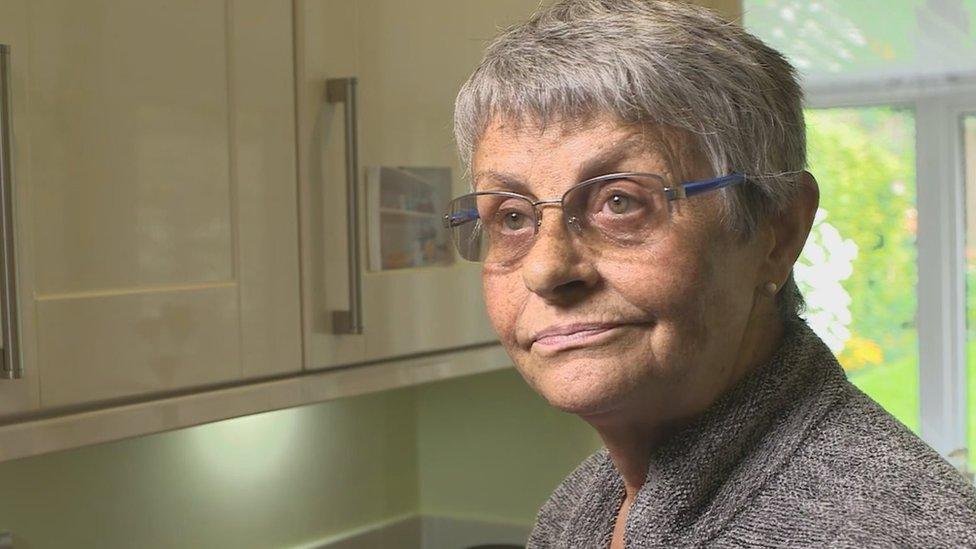
Wendy Mitchell lost all of her Personal Independence Payment following a reassessment
Thousands of people living with degenerative conditions - like dementia, Parkinson's and multiple sclerosis (MS) - are losing part or all of their disability benefits after being reassessed. One woman, Wendy, rejects the assessors' insinuation that her Alzheimer's is getting better.
"My life has changed. I was able to talk about anything and everything, but now I have lots of notes to refer to," Wendy Mitchell tells the BBC's Victoria Derbyshire programme.
It has been over 18 months since the BBC first spoke to her, for a piece about living with early onset dementia.
Around that time, Wendy was assessed for a disability benefit known as a Personal Independence Payment (Pip), which is designed to help someone living with a wide range of disabilities. She received £76.90 per week.
But one-and-a-half years later, she was reassessed - and now receives nothing.
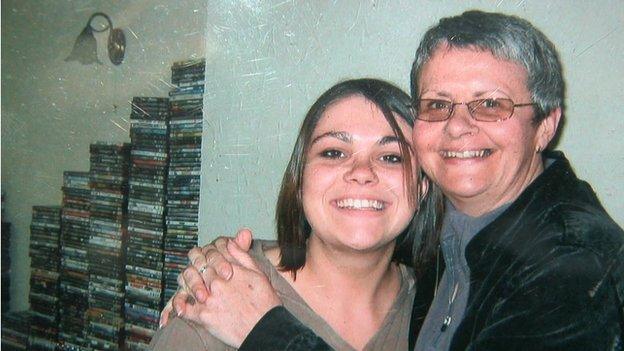
Wendy with her daughter
"I got the shocking letter that I was no longer going to get any payment whatsoever and a list of all the things that I am apparently better at now than I was 18 months previously - which was ridiculous" she said.
Wendy is referring to the letters sent out after each assessment, which measure her ability to live independently across different criteria. The higher the mark, the more help the person is thought to need with a particular task.
In 2015, Wendy was given a score of two for preparing food - saying she needs "prompting from another person to prepare or cook a simple meal".
A year on and Wendy has signs around the kitchen to guide her in making a cup of coffee. And rather than cooking for herself, her daughter now prepares her meals.
During the reassessment process, however, she was given zero marks for preparing food. The assessors said: "You can prepare and cook a meal unaided."

Signs, containing QR codes, are used to help Wendy carry out daily tasks
Wendy believes the assessors "totally lacked any knowledge of dementia whatsoever".
She recently lost a first review of the Pip decision and has decided a full appeal at tribunal is probably too much to go through.

Find out more
The Victoria Derbyshire programme is broadcast on weekdays between 09:00 and 11:00 on BBC Two and the BBC News Channel.

Since the introduction of Pips in 2013, however, the number of people appealing a decision at tribunal has been rising sharply.
Overall there are now more than 6,000 full tribunals a month and in around 65% of cases the original decision is overturned by a judge.
Many of those cases are bought by people transferring across to Pip from the Disability Living Allowance (DLA), an older benefit which the government describes as outdated.
Under DLA, decisions were made by assessors working directly for the Department for Work and Pensions, whereas under Pip, decisions are made after a face-to-face assessment carried out by a health professional working for one of two private companies - Atos and Capita.
The government is in the middle of transferring everyone across from DLA to Pip.
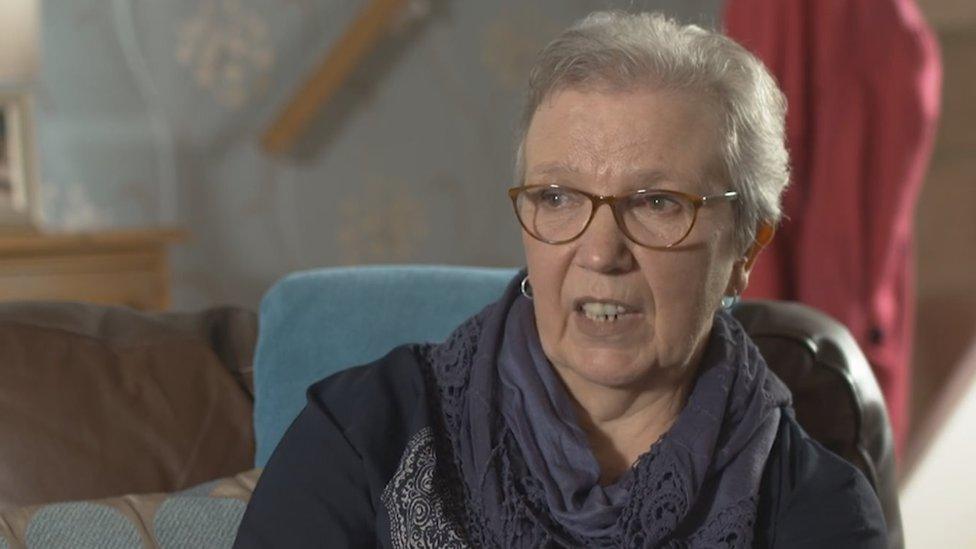
Diane was forced to give up her car after her Pip mobility allowance was stopped
For seven years, Diane Barrett - who has Parkinson's disease - received the higher rate of both the living and mobility elements of DLA.
But after her reassessment, Diane was told her needs had changed. The amount she received for the mobility part of the allowance dropped from £57 per week to zero.
"I was absolutely gobsmacked when the letter came. Without the mobility allowance I couldn't have a car," she explains.
"It took my independence away, totally. I consider myself really independent."
Diane asked for the decision over Pip to be reconsidered, but lost a second time.
Six months later, however, she took the case to a full appeal in front of a judge. The tribunal took only 10 minutes to decide the government was wrong.
"I burst out crying," she says, "and so did my son. We were just so relieved."
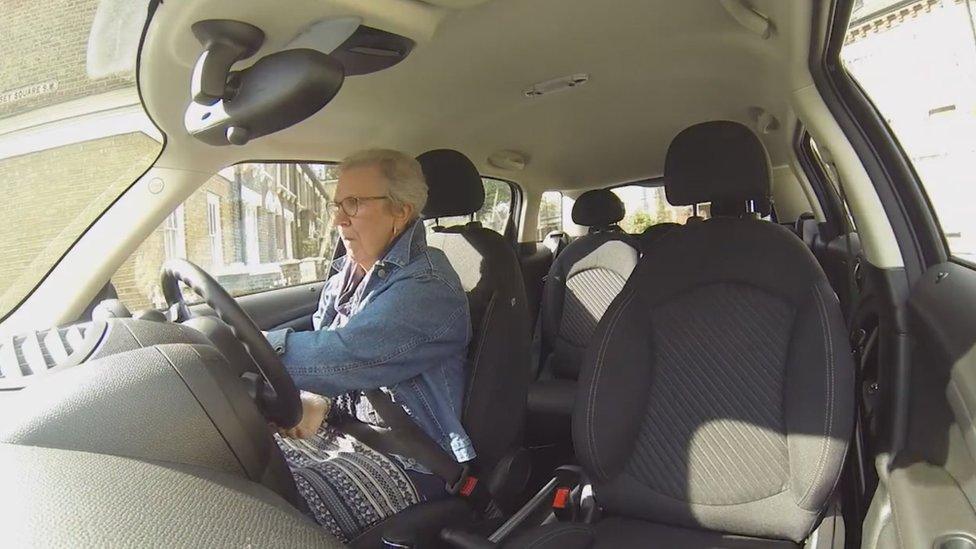
Following the appeal, Diane is now back behind the wheel
Freedom of Information requests made by the Victoria Derbyshire programme show that under the older DLA scheme 82% of people with Parkinson's were receiving the full mobility payment. Under Pip that has dropped to 40%.
For those with MS the figure has fallen from 93% to 50% and from 83% to 24% for those with rheumatoid arthritis.
The statistics suggest that overall under Pip more people with dementia receive the higher rate of payments, but critics say that is not the full story. The Alzheimer's Society says it has received at least 250 calls from people with problems with the benefit over the last 18 months.
Parkinson's UK have now set up a dedicated team to deal with benefits cases. The charity says people with a degenerative disease should not have their needs constantly reassessed.
"The experience of going through an assessment is extremely stressful," the charity's policy and campaigns advisor Phil Reynolds says.

Phil Reynolds worries some assessors have a mixed understanding of Parkinson's
"People with Parkinson's go to so much trouble to appear well and take their medication - and because they look well on that day, the assessor often says 'well you don't look ill, you don't need that support any longer'."
A spokeswoman for the Department of Work and Pensions said that overall "more people receive the highest rate of support under Pip than under DLA, and more people with MS, osteoarthritis and Parkinson's are receiving the highest possible rate for daily living expenses.
"Pip assessments are carried out by qualified health professionals who combine their clinical knowledge with an understanding of the fact that not everyone with the same disability is impacted in the same way."
But for Diane, being told that she no longer needed the care she felt entitled to simply made her feel "like they're calling you a liar".
- Published8 April 2015
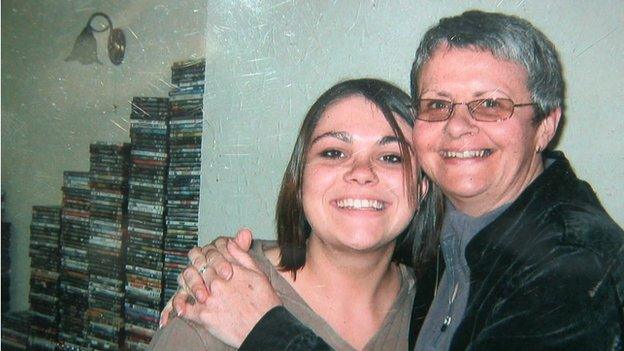
- Published21 March 2016